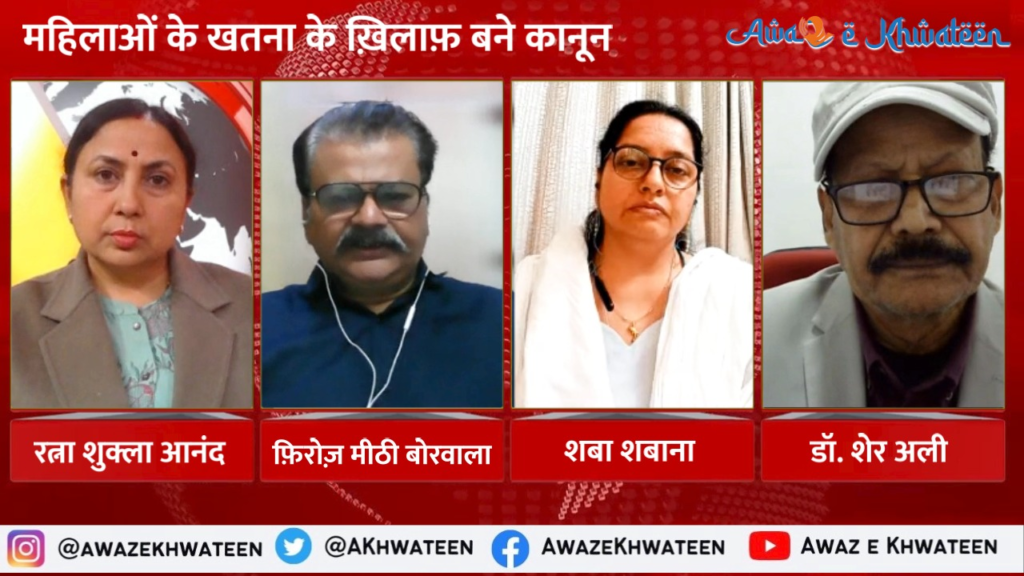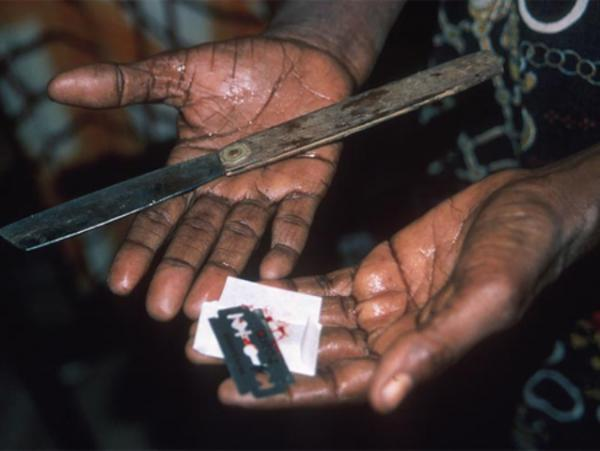By Hiba Zafar | Awaz-e-Khwateen
In the quiet corners of a small city, hidden from the world’s gaze, lies a story of silent suffering that spans generations. Meet Shabana, a woman whose life has been marred by the brutal practice of Female Genital Mutilation (FGM). Her journey is a harrowing testament to the enduring pain inflicted upon countless women and girls around the Bora Community. A time when innocence should have reigned supreme. Instead, it was shattered by the cruel hands of tradition. At the tender age of seven, she was subjected to FGM. Growing up, Shabana’s heart simmered with resentment towards those who had betrayed her trust. The bond between mother and child, once sacred,
was tainted by betrayal and abandonment. Her marriage, too, bore the scars of FGM. Intimacy became a battleground, as the physical and psychological trauma inflicted upon her body cast a shadow over her relationship with her husband. But Shabana’s story is not hers alone. It echoes across continents and cultures, resonating with millions of women and girls who have been robbed of their dignity because of FGM. Despite efforts to eradicate female genital mutilation (FGM) as a deeply ingrained practice causing physical and psychological harm to millions of girls and women worldwide, corruption persists, especially in communities that the more it is steeped in traditional culture leaving a lifelong trauma.
The Dangers and Consequences:
FGM involves the partial or total removal of the female genitalia for non-medical reasons, it is often performed under unhygienic conditions without the use of anesthesia The procedure carries serious consequences severe and permanent, such as pain, infection, difficulty in laying, complications during childbirth, psychological trauma and violation of human rights, characterized by violence in the sexual It also appears.
In Bora communities and other communities’ girls undergo this inhumane practice at a young age, often without consent and with little regard for their well-being The physical and emotional pain of FGM can be experienced by girls’ negative influence on. health and quality of life. From heavy bleeding and infection to long-term complications and psychological trauma during childbirth, the consequences of FGM are far reaching.
Awazekhwateen’s Crusade against FGM:
Despite widespread condemnation from international organizations and human rights advocates, FGM persists due to deeply ingrained cultural norms and social norms, there has been growing recognition of the want for legal protection to prevent and cope with FGM in recent years. Organizations like Awazekhwateen a Delhi based NGO, led by Director Ratna Shukla, are at the forefront of efforts to raise awareness about FGM and advocate for its eradication. In a recent studio discussion led via Awazekhwateen, specialists like Feroze

Methiborwala, a social worker, Dr. Sher Ali, a researcher on the topic, and Shabana, a social employee and survivor of FGM, highlighted the urgent need for felony safety for girls at risk of FGM. Shabana bravely shared her very own experience of being
subjected to FGM and called upon policymakers, including the Prime Minister, to enact legislation to outlaw this dangerous practice.
Through studio discussions and public cognizance campaigns, these activists have shed mild on the superiority and impact of FGM in communities just like the Bora Community. They have highlighted the pressing need for legislation to criminalize and prevent this dangerous exercise, ensuring that girls are protected from physical and emotional damage.
Amplifying Voices, Ending Silence:
The voices of survivors like Shabana, who bravely talk out in opposition to FGM, must be heard and amplified. Their testimonies are powerful reminders of the urgent need for a movement to defend the rights and dignity of women and women. It is time for governments, policymakers, and groups to come back collectively to enact legal guidelines and policies that prioritize the removal of FGM and ensure the safety and proper well-being of all girls. The issues faced by girls who undergo FGM are multifaceted and deeply related. Beyond the instantaneous physical pain and fitness headaches, women may additionally enjoy long-term periods of mental trauma, loss of sexual delight, and demanding situations in
reproductive health. FGM perpetuates gender inequality and reinforces dangerous stereotypes about women’s bodies and sexuality, further marginalizing and disempowering women and women.
FGM has profoundly impacted and marred my entire life, leaving lasting trauma that haunts my thoughts every day. My earnest desire is to spare more girls from enduring the same suffering – SHABANA
Building a Legal Framework:
A comprehensive prison framework is vital to cope with FGM successfully. It should consist of provisions for schooling and cognizance-raising, healthcare offerings for survivors, and assistance for network-based tasks to give up the practice. Additionally, legal guidelines must mandate penalties for perpetrators and offer protection and resources for girls vulnerable to FGM. Governments and policymakers must take decisive motions to give up FGM and protect the rights and well-being of women and girls. Legislation criminalizing FGM, coupled with complete training and attention applications, can help challenge deeply ingrained cultural norms and empower groups to abandon this harmful practice. By running together to elevate focus, propose for exchange, and provide aid to survivors, we will create a global in which each woman can grow up loose from the concern of FGM and fully realise her capacity.

